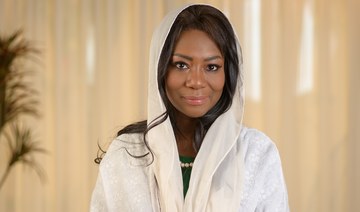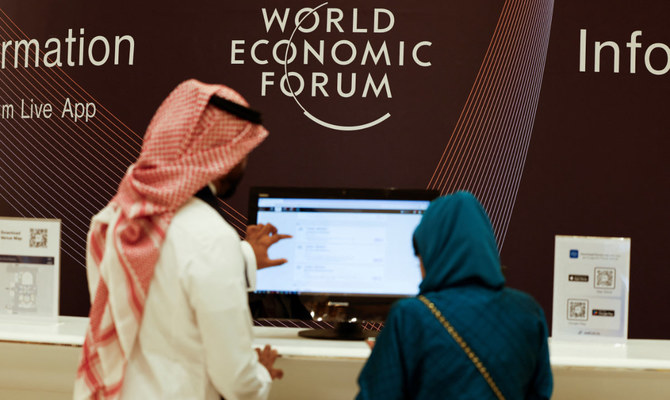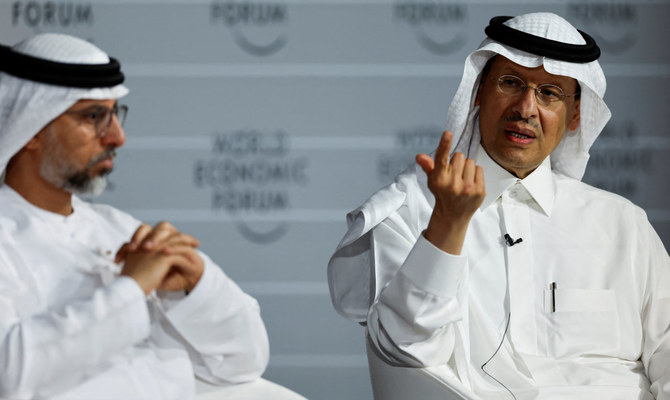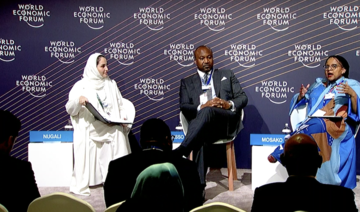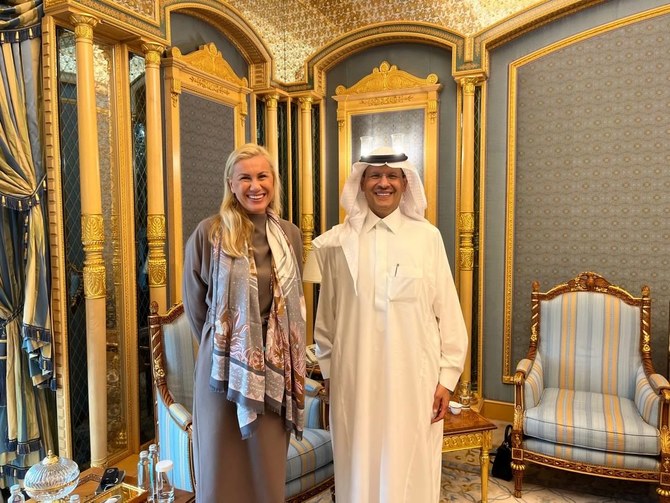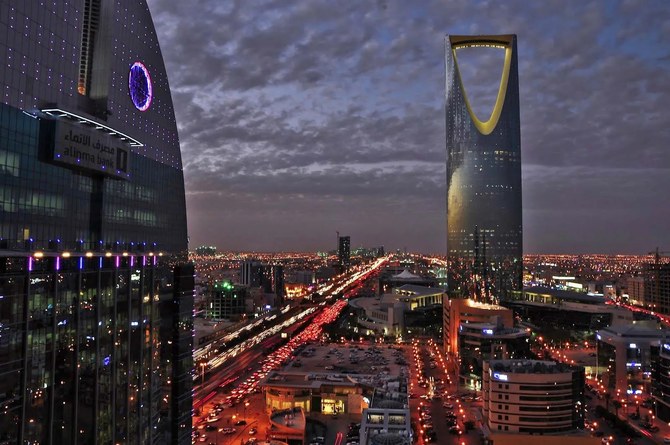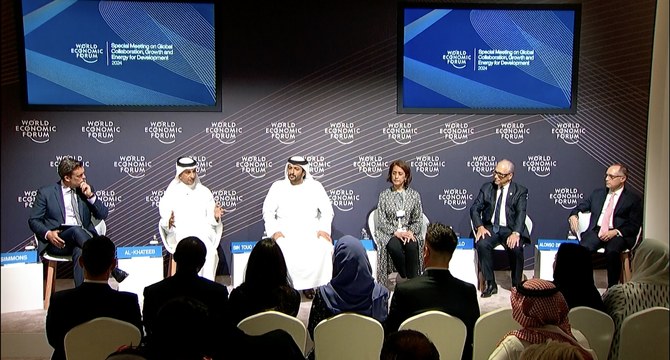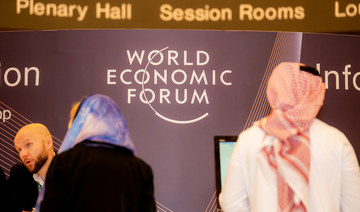DUBAI: All the Middle East’s citizens and residents unable to travel to their favorite European destinations this summer can take some consolation in the fact that there is a little bit of France at their local mall, or available at the click of a keyboard.
L’Oreal, the French brand that epitomizes so much of the style and beauty of the country, is weathering the pandemic storm and is as committed as ever to the region, where it has had a presence for the past 60 years.
Remi Chadapaux, regional managing director of the Paris-based company, told Arab News that L’Oreal has been affected by the fall in consumer demand in the first half of the year, as lockdowns and curfews hit the retail industry hard.
“Now it’s a little complicated by COVID-19 and the oil price, but I think things will settle down,” he said.
Like the rest of the consumer sector, the brand was badly hit when people in the region were told to stay at home for most of April and May.
Even when they could go out, they were less inclined to use L’Oreal’s range of beauty products. Makeup and face masks are not natural companions.
“Makeup is huge in the region. It’s taking a bit of a hit right now, but I’m confident we can recreate the bond with makeup,” Chadapaux said.
“The local GCC (Gulf Cooperation Council) citizens are very heavy makeup consumers, so there’s a bit of a pause right now because they’re not going out that much, or because they’ve been wearing a mask,” he added.
“There’s a change in consumption within the makeup category. The lips category is going down whereas the eyes category is still resilient.”
Other parts of the business have also suffered. L’Oreal began its 110-year history as a supplier of professional products to salons and coiffeurs, so that side of operations halted immediately and is only slowly opening up.
But mass-market products and derma-cosmetics have remained available through pharmacies, and Chadapaux believes that the business has a good chance of breaking even by the end of the year. “Right now, what we have in our new budget is a slightly negative result of the year. But it’s work in progress. I’m trying to motivate the team to end the year flat,” he said.
If L’Oreal achieves that, it will be in no small amount due to the boom in e-commerce, which Chadapaux calls one of the “silver linings” of the COVID-19 crisis.
BIO
Born: France, 1970
Education: Graduate, international marketing and strategy, European Business School, Paris
Career
- Hospitality executive
- Managing director, L’Oreal Middle East
The group launched an online business in 2017, when it accounted for less than 1 percent of sales.
In May it approached one-third, and by year end — assuming an orderly reopening and a pick up in mall traffic — it is slated to be 15 percent of the total.
“It’s a big priority. We were very lucky that we had fantastic people in the organization. We were ready to transit faster, and this is what we did. It accelerated the move toward e-commerce,” said Chadapaux. “This is also linked to a lower baseline on offline, but it has been extended. Now we’re looking at extending our capabilities in e-commerce and adding on resources.”
L’Oreal acted fast when the first lockdowns came. “The online priority was already there before COVID-19 started. We were working on several projects in e-commerce even before the crisis started,” Chadapaux said.
“After the first three days of confinement, we moved 20 people from offline positions to online responsibilities. They were working with our already existing digital team, and they were given new roles within the organizations,” he added.
“We did it very early in the crisis, and we’ve been having record e-commerce sales month after month.”
The other “silver lining” he sees for the rest of the year is that citizens and residents of countries in the Middle East will be staying at home rather than traveling to holiday destinations. This means sales of all products will pick up as the year goes on.
“Beside e-commerce, there’s another great opportunity that’s going to take place now because all the residents of the GCC are going to be homebound. This has never happened before, and we’re going to set up a strategy around that,” Chadapaux said.
“I know from experience that we have heavy buyers in Europe during the summer — Saudi citizens, Kuwaitis, wealthy Emiratis. They’re in Geneva, they’re in Montreaux, they’re in Marbella, they’re in Monaco. They’re super-heavy spenders in luxury goods and especially in beauty. These people will be homebound, and they’ll have little other leisure than to go to the mall or shop online, and we’ll be there to service them.”
He pointed to the experience of a Marbella department store that regularly became the No. 1 retail outlet in Spain in August, mainly because of wealthy Arab shoppers.
The Middle East is central to L’Oreal’s global strategy. It has been in the region since 1960, and now employs 520 people in the GCC region, selling around 30 of its own branded products and others from its international catalogue of some of the best-known names in the beauty business.
It set up in Saudi Arabia in 2012 in partnership with a local entrepreneur, conscious of the growing market power of the Saudi consumer and the demand for beauty products. The Kingdom is now core to the L’Oreal strategy in the region.
“Saudi Arabia is a big focus for us, and we have a very important relationship. It has been the focus ever since I arrived,” Chadapaux said.
“We’ve refocused all the decisions and the brands toward Saudi, and we’re doing well there. It’s very important to have the right partner. Saudi Arabia has positive demographics. I’m very positive about the region as a whole and especially about Saudi Arabia.”
Saudi shoppers have their own particular characteristics, he explained. “Fragrances is a big category within the region, and it’s two-fold. You have the international fragrances and the Arabic fragrances, and it’s split roughly 50/50,” he said.
“There’s a heavy consumption of fragrances, of incenses and of oils. The routines are very elaborate. The rituals are different from what we have internationally. It’s specific to the region, and we’re looking at that very closely.”
That will be part of the L’Oreal strategy to exploit the post-pandemic recovery when it arrives. How does Chadapaux see the shape of recovery?
“I think the recovery is a tricky question. It will be different speeds in different markets. I think Kuwait, Bahrain and Qatar will recover fast, while Oman might take a little longer,” he said.
“As far as Saudi is concerned, I think the beauty market will probably be positive at the end of the year, while the UAE may take a little longer. I’m talking about the market in general, not about our performance. This varies from one division to another.”
Some signs of consumer recovery are already there. “There were pictures of people lining up outside luxury stores in Saudi last week — queues in front of Vuitton and Hermes stores — so the appetite for beauty is still there,” Chadapaux said.
The crisis brought on by the pandemic was not a crisis of demand, he added. “It was just that consumers couldn’t access the points of sale. It was a crisis of offer,” he said, adding that historically, health products have always been among the first consumer sectors to rebound from a downturn.
L’Oreal in the Middle East — backed by the financial power of the global group — took an early decision not to make any staff redundant and not to cut salaries.
“We protected our employees in two ways: Financially as far as employment was concerned, but also — and this was a top priority — in terms of safety. There was physical safety — banning travel, sending people to work from home very early,” Chadapaux said.
The Dubai office where he works is running at 50 percent capacity now, even though by law it could be at 100 percent.
In another important respect, the pandemic crisis has been an opportunity for L’Oreal and for Chadapaux personally.
“In some ways, the crisis has been a liberating experience. I used to get frustrated that things weren’t moving fast enough, but now there has been an acceleration in our business,” he said.
“People feel empowered and entrusted. It has given autonomy to L’Oreal and the people who work here.”




